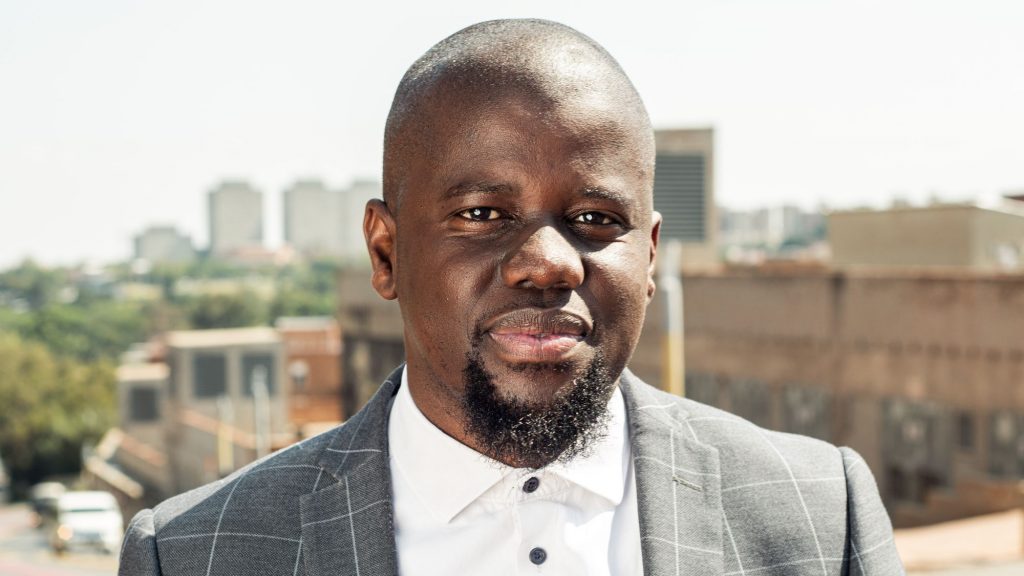Four young scientists, accompanied by Eskom Expo’s Business Manager, Mmamoloko Rancia Riba, won their place to represent the country at the Indonesia competition, renowned…
Africa set to be next global technology hub, say experts

It’s no secret that technology across Africa is burgeoning at unprecedented rates. Homegrown innovations that speak to socio-economic bottlenecks are plenty due to increased access to resources, training and development, and investment.
This can largely be attributed in part to the growing number of “technology hubs” being established on the continent that are fostering innovation for start-ups and helping to bridge the gap to a more developed and economically sustainable continent.
According to the World Economic Forum (WEF) , 92% of Africa’s investment in technology is won by Nigeria, Egypt, Kenya, and South Africa, which account for a third of the continent’s start-up incubators and accelerators.
While these four regions lead the way in terms of technology hubs, regions such as Zanzibar, Tanzania, through its new initiative ‘Silicon Zanzibar’ are joining the race to attract and relocate technology companies and workers from across Africa and beyond to the island.
The continent has a long way to go if it is to reach the record figures raised by US start-ups. As we continue to bear witness to the continued rise of innovative solutions from the continent, here’s what an increase in local tech hubs could mean for industries and what to take into consideration:
Increased partnerships and collaboration
Africa has been at the forefront of world-class innovation for a long time, especially when it comes to homegrown technology solutions that speak to and solve socio economic problems in communities across the continent.
Countries such as Kenya and Nigeria have been at the forefront, but the likes of Tanzania, Uganda and Ghana are establishing intentional tech ecosystems that foster entrepreneurship and skills development, which will open up endless possibilities, particularly for fintech, an industry that is rapidly growing, evolving and one that has often relied on foreign investment.
“At MFS Africa, we have always believed that the only currency is access, and while we continue to, through our own efforts, create, advocate for, and partner to enable borderless transactions across the continent, the growing ‘tech hub’ culture in Africa will in the long run allow us to identify talent and collaborate with and partner with more start-ups.
“It also has the potential to increase dialogue with governments in regions like Tanzania, where we have partners, as we continue to transform the lives and realities of Africa and the diaspora,” says Cynthia Ponera, regional sales director for East Africa at MFS Africa, a leading digital payments hub in Africa that works continuously with trusted global partners across Africa to connect African consumers to each other and to the global digital economy.

Sufficient power for the necessary infrastructure
“When we talk about Africa’s quest to be a global technology hub we need to ensure that we’re also considering the tech needed to power the foundational infrastructure that supports this ambition,” says Matthew Cruise, head of business intelligence at Hohm Energy.
According to the United Nations, some 570 million people in Africa have no access to electricity, which drastically hampers socio-economic development or poverty alleviation for those without this basic human right.
Renewable energy in the form of solar energy is the most viable option for addressing this challenge, as the continent holds some of the highest solar radiation numbers in the world.
The inability of Eskom to meet the energy needs of Africa’s most industrialised country is widely known. But surprisingly, South Africa’s energy crisis has created opportunities for companies and investors to meet the demand for renewable energy alternatives.
We are seeing considerable innovation in solar solutions locally and throughout Africa for addressing power outages, and many of these will be replicated in Europe and other first-world countries as they too start to grapple with rising fuel costs and power outages.
As the technology to harness this renewable resource becomes both more sophisticated and more cost effective, government and business alike need to embrace this as the solution to one of the continent’s most fundamental infrastructure challenges.
Attracting more investment through unique solutions
Tony Mallam, managing director of bitcoin micro-saving and investing fintech platform, upnup advises that “entrepreneurs wanting to leverage the potential opportunities of a global Africa tech hub wave should think about building solutions that are unique to Africa, such as the huge unbanked and the “Know Your Customer” KYC’ed population, estimated to be at least 57% of the continent’s population.
“The opportunity provided by Africa’s high mobile internet penetration will allow investors to leapfrog last generation infrastructure into cutting-edge solutions. Governments would need to support this opportunity by providing the right infrastructure, a safe regulatory environment, minimal red tape and tax incentives,” explains Mallam.
Training, developing and upskilling will be crucial
Building the continent’s tech and digital capability needs to run parallel with skill development. The World Bank estimates that by 2050, half of Africa’s population of 1 billion people will be under the age of 25, suggesting that the workforce of the future is based here. But in order to effectively harness the potential of this workforce, we need to ensure we’re training, developing, and upskilling people in a relevant and sustainable way.
Salesforce’s Authorised Training Partner and Workforce Development Partners in South Africa are committed to bringing fit-for-purpose skills into the ecosystem to meet the demands of the future workplace and to also ensure we’re leveraging technology for the greater good. And partnerships are central to reaching these objectives.
“Indeed, if Africa is to realise its ambitions of being a global tech hub, it is imperative that all the various stakeholders—government, business, civic organisations and educational institutions – work collaboratively. At Salesforce, we believe business is a platform for change and thus has a central role to play in Africa’s tech future’” says Zuko Mdwaba, country leader and area vice president for Salesforce South Africa.

Access is key and healthtech is central to that
It is imperative that any reference to tech on the continent makes special mention of health tech, where the room for growth is exponential. In fact, the African healthcare market is expected to be worth $259 billion by 2030, pointing to an opportunity that cannot be ignored.
“Three thoughts come to mind of how healthtech can significantly impact the continent’s different markets for the better: It can provide access to cheaper healthcare, provide access to healthcare in your pocket (such as telehealth), and technology can play a role in bridging the skills gap and helping medical practitioners do more with less resources,” says Bongani Sithole, CEO of Founders Factory Africa.
He adds that based on their own experience at Founders Factory Africa, these are problems healthtech can solve, with its ability to improve the lives of users.
“In our portfolio alone, Viebeg is enabling hospitals to order medical equipment without paying for it upfront. Neopenda has developed a product – the neoGuard – that is a clinical vital signs monitor for infants and other patients in resource-constrained areas. Healthtech can be successful, especially when innovation is applied in ways that solve pain points of health users on a daily basis.”
Improved connectivity will improve competition in business
Africa’s internet penetration is currently half the global average of 62.5%. This affects not only consumers but also small businesses across the continent.
This, along with findings that revealed that South Africa saw a 66% growth in e-commerce in 2020 indicates that in order to compete and even scale, SMEs need affordable access to the internet. Currently, SMEs that have limited or no access to the internet are stunted in their ability to increase market share and reach new audiences.
Head of marketing and communication at online booking platform Jurni, Tshepo Matlou, says, “With more tech hubs in Africa, will automatically come increased connectivity. This will in turn lead to more SMEs being able to embrace and leverage online opportunities ultimately allowing them to hold their own in a competitive market.”
READ NEXT: Climatetech is about more than just saving the planet’

